
下载亿题库APP
联系电话:400-660-1360

下载亿题库APP
联系电话:400-660-1360

请谨慎保管和记忆你的密码,以免泄露和丢失

请谨慎保管和记忆你的密码,以免泄露和丢失

为了帮助广大考生顺利通过口译笔译考试,帮考网为大家分享了一些高级口译试题相关内容,希望大家每天坚持练习,积极备考。
Do not resuscitate: final word is with medical staff, whatever patient feels
The case of Janet Tracey who died in Addenbrooke\'s hospital after family claims that a "do not resuscitate" order was put in her medical notes will, no doubt, encourage health managers to check how well staff and patients are acquainted with the use of such orders.
They have been given official notice to do so before. In 2000, the Department of Health in England reminded local trusts they must have appropriate policies. This followed warnings from doctors that junior staff lacked proper guidance and training and from the charity Age Concern that older people were being written off.
These warnings came after Jill Baker, 67, from Southampton, who had stomach cancer and was being treated for septicaemia, discovered after leaving hospital that a "do not resuscitate" order had been written in her notes by a junior doctor. Neither she nor her husband had been consulted.
Cardiopulmonary resuscitation (CPR) attempts to restore breathing or blood flow to those whose heart has stopped beating or who have stopped breathing. It can include using electric shocks to try to correct the rhythm of the heart, repeatedly pushing down firmly on the patient\'s chest and inflating the lungs with a mask or tube inserted into the windpipe.
But while TV medical dramas may suggest it is often successful, statistics tell another story.
Only 15-20% who have such treatment ever go home, according to the British Medical Association (BMA), which, together with the Royal College of Nursing (RCN) and Resuscitation Council, offers professional guidance on when Do not attempt Cardiopulmonary Resuscitation (DNACPR) orders – to give them their full name – should be prepared.
Rib fractures and brain injury are significant risks, says the NHS\'s policy guidance in Scotland while its leaflet for patients, relatives and carers says: "Most patients never get back the physical or mental health they had before they were resuscitated. Some have brain damage or go into a coma."
In an era when nearly seven in 10 people die in hospital – and most have "do not resuscitate" orders – there is increasing pressure for more mentally competent adult patients to help plan towards the end of their lives.
Adults can legally refuse medical treatment, even if that leads to their death. But the medical profession is also clear that doctors cannot be required to give treatment against their clinical judgment, although they should offer patients the chance of a second opinion, if possible.
The General Medical Council (GMC), last year said there was no absolute obligation to prolong life.
In 2005, it won a case on appeal brought by Leslie Burke who had a degenerative brain condition. He had claimed a legal right to artificial nutrition and hydration, come what may, rather than give doctors the ultimate say.
The GMC said the ruling meant that doctors had no legal or ethical obligation to agree to a patient\'s request if they consider the treatment was not in the patient\'s best interests.
The Scottish government is blunt on the issue. Its patient information leaflet says that while the healthcare team "must listen to your opinions and to anybody you want involved … you cannot demand treatment that will not work".
In England, where successive governments have trumpeted a mantra of patient choice, Andrew Lansley, the health secretary, has stopped short of a national policy.
The Department of Health told the Guardian: "Our end of life care strategy commended the joint statement by the BMA, RCN and the Resuscitation Council as a basis for local policy-making.
"There is a substantial amount of expert guidance available to assist those making complex decisions in discussion with other members of the healthcare team, the patient and their family."
Yet a number of soon-to-be abolished strategic health authorities in England want to harmonise policies across local care settings, including hospitals, hospices and residential homes.
In the words of Mike Richards, the government\'s end-of-life czar, this "will minimise future problems with cross-boundary working by encouraging a consistent – or at least compatible – approach nationwide".
A draft East Midlands document, for instance, says that there should be sensitive discussion with patients who want to insist on resuscitation in an attempt "to secure their understanding and acceptance of the DNACPR decision".
It adds: "Although individuals do not have the right to demand that doctors carry out treatment against their clinical judgment, the person\'s wishes to receive treatment should be respected wherever possible".
It will be April 2013 before the recently published regional policy in the East of England, where Addenbrooke\'s is based, is fully implemented in all its trusts.
It says: "A patient who has capacity has no legal right to demand CPR (or any other medical treatment) if the responsible senior clinician and multi-professional healthcare team judge that it would not be medically successful in achieving medical life."
It says that when a "do not resuscitate" decision has been made: "Opportunities to sensitively inform. patients and relevant others should be sought unless it is judged that the burden of such a discussion would outweigh the possible benefit for the patient."
It also says that "where death is unavoidable, [a patient] should be allowed to die a natural death and it may not be appropriate in these circumstances to discuss a DNACPR decision".
NHS Scotland made quite clear why it had adopted a national policy last year. "The increased movement of patients and staff between different care settings makes a consistent approach to this complex and crucial area a necessity," it said.
In addition, there was uncertainty about the process of making decisions that CPR should not be attempted. Local variations could cause misunderstandings and lead to distressing incidents for patients, families and staff.
Vivienne Nathanson, director of professional activities at the BMA and a fellow of the Royal College of Physicians, said it would be helpful for there to be a national policy in England, "because it means patients, families and healthcare teams know what the rules are".
She said: "Clinicians do not want to do things that are futile. They know when [CPR] can\'t make a difference. All it may do is reinstitute sensation. You don\'t want to do something that gets a little way but will not succeed.
"For a lot of doctors, this is instituting a lack of dignity, doing something because you can rather than because it will make a difference. Ethically, you should not do anything to a patient that will not benefit them."
Nathanson said decisions not to resuscitate had to be made case by case. "There is no way of saying \'the following types of patient will not be resuscitated\'."
Communication was vital and all hospitals should have leaflets to help discussions with relatives. "There is very good research that when you tell people bad news, they don\'t remember all of it."
In addition, doctors needed "to help people understand that for most people the process of dying is quite a simple slipping away. It is not violent or traumatic." Fear, said Nathanson, "leads to people wanting resuscitation seeing, say, cardiac arrest as a sudden and violent event, but sometimes the heart simply stops when you get to that stage of a terminal illness."
Families of mentally competent adult patients had "no right to anything in law but in practice, we always try to talk to the family ... but with the patient\'s permission. You won\'t talk to a family because you don\'t like what a patient said. You talk to the family where the patient can\'t give their views or you talk to the family to explain to the family."
评析:本文是《卫报》(Guardian)2011年8月26日刊登的题为Do not resuscitate: final word is with medical staff, whatever patient feels文章。主要阐述了GMC(医学总会)对于医嘱 Do not resuscitate 的态度。GMC认为医务人员有权发出Do not resuscitate 的声明,不管病人及病人家属是否持不同意见。和高口阅读题其他篇章一样,这篇文章很长,但是层次分明,考生可以快速把握信息。
看到这里小伙伴们是否有所收获呢?希望帮考网为大家分享的内容能给大家带来帮助,后续也可以多关注帮考网,这里有更多的考试资讯,你想知道的都在这!
 27
27三级笔译和口译考试每年可以考几次?:三级笔译和口译考试每年可以考几次?通常情况下笔译口译考试都是每年两次。上半年一般在1月份报名,5月份考试,下半年一般在7月份报名,11月考试,各省市情况不一,具体情况可上CATTI官网或各省市人事考试网查询。
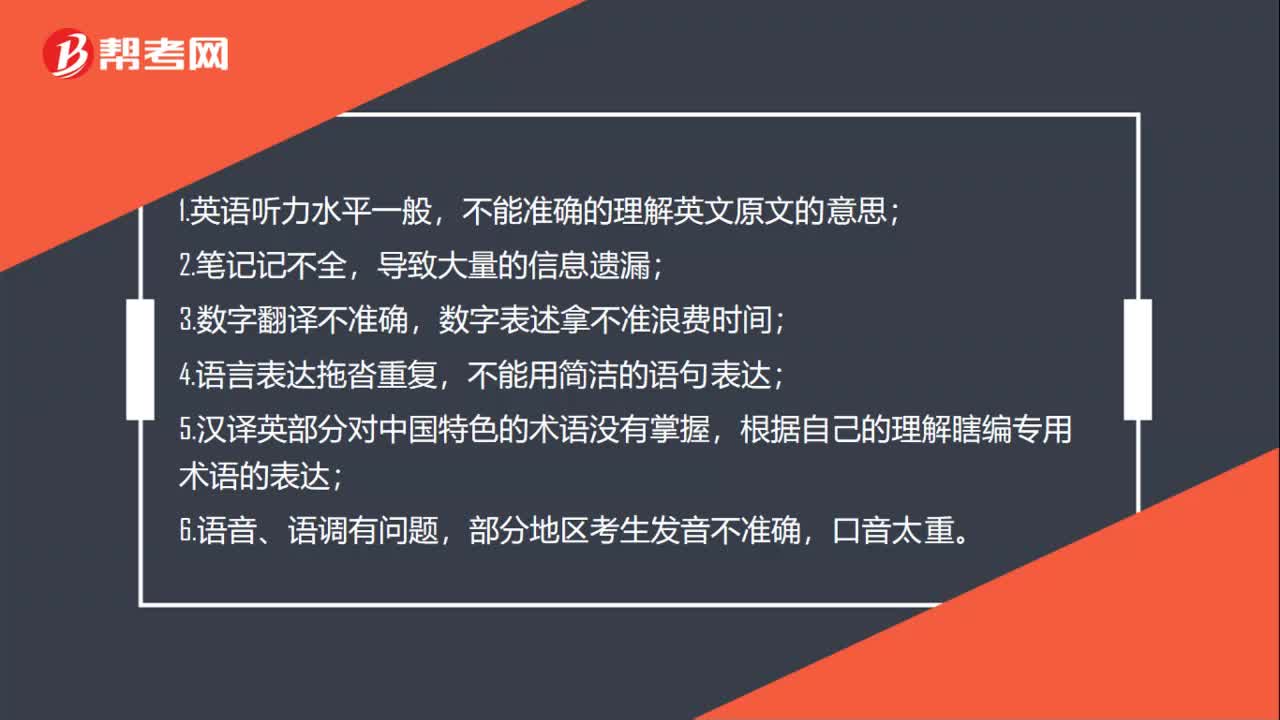 43
43口译考试应注意哪些问题?:口译考试应注意哪些问题?1.英语听力水平一般,不能准确的理解英文原文的意思;2.笔记记不全,导致大量的信息遗漏;3.数字翻译不准确,数字表述拿不准浪费时间;4.语言表达拖沓重复,不能用简洁的语句表达;5.汉译英部分对中国特色的术语没有掌握,根据自己的理解瞎编专用术语的表达;6.语音、语调有问题,部分地区考生发音不准确,口音太重。
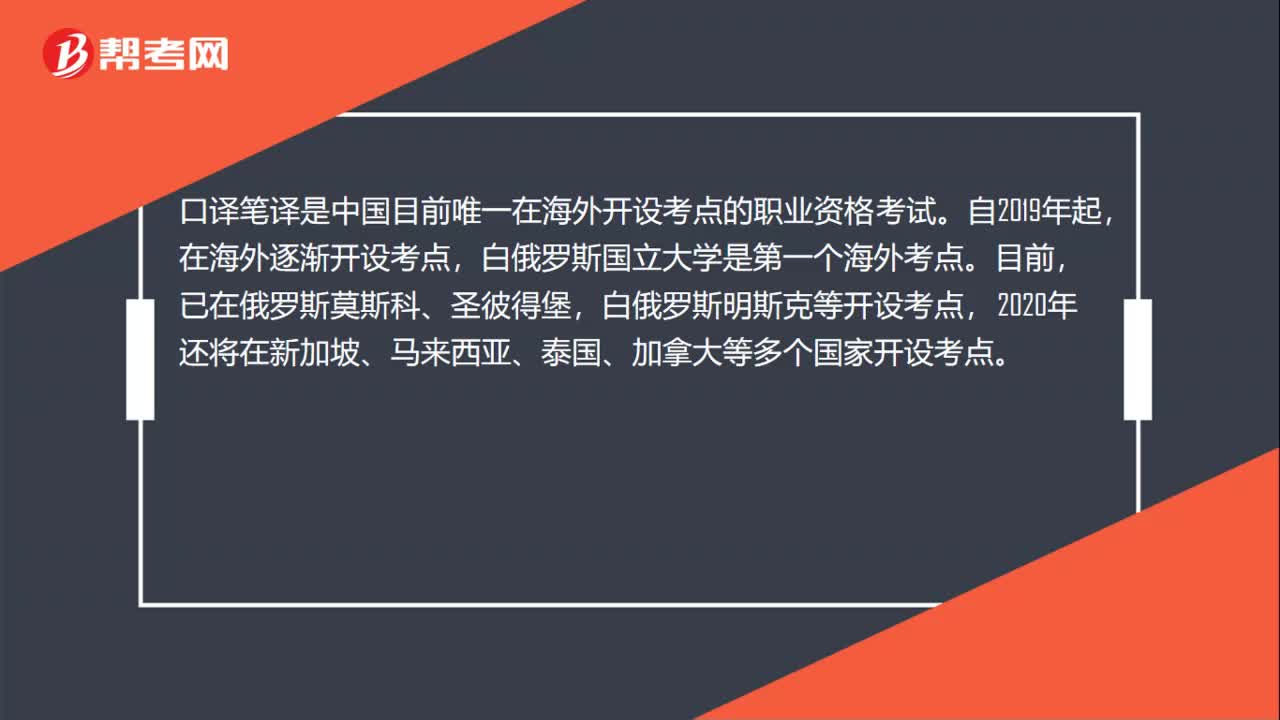 36
36口译笔译考试在海外的考试地点有哪些?:口译笔译考试在海外的考试地点有哪些?口译笔译是中国目前唯一在海外开设考点的职业资格考试。自2019年起,在海外逐渐开设考点,白俄罗斯国立大学是第一个海外考点。目前,已在俄罗斯莫斯科、圣彼得堡,白俄罗斯明斯克等开设考点,2020年还将在新加坡、马来西亚、泰国、加拿大等多个国家开设考点。
 00:23
00:232020-06-03
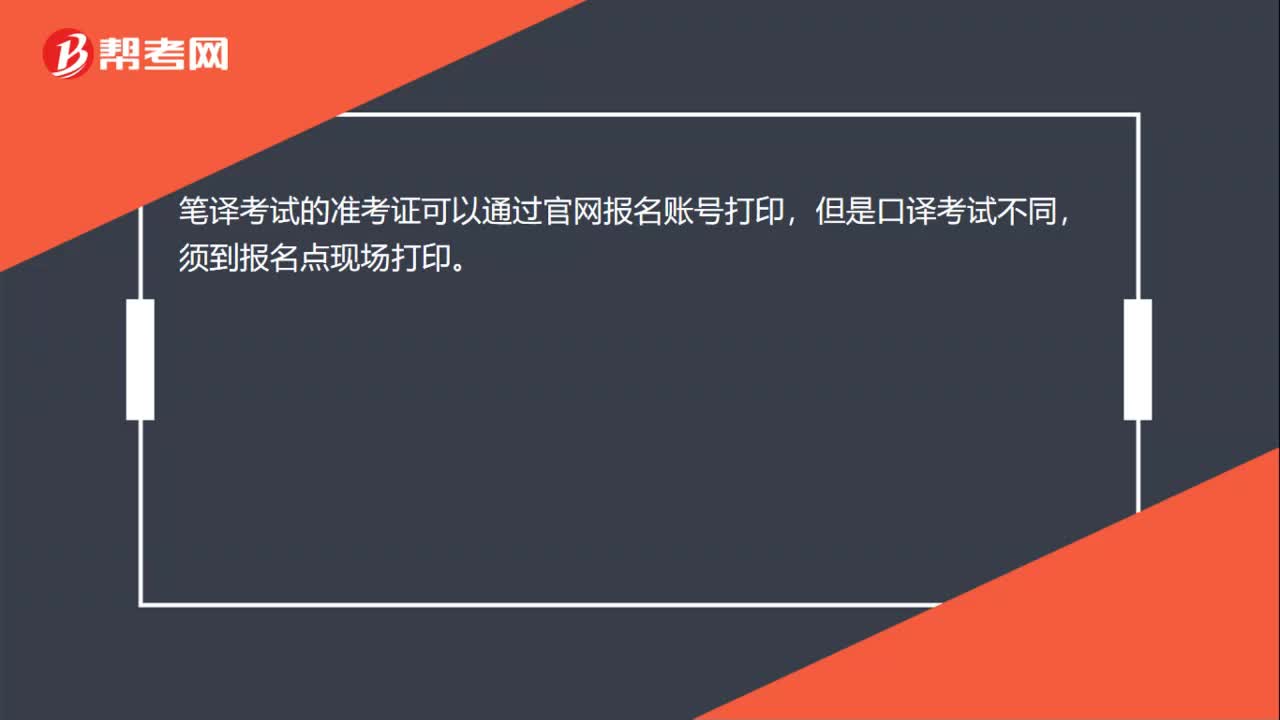 00:15
00:152020-06-03
 00:27
00:272020-06-03
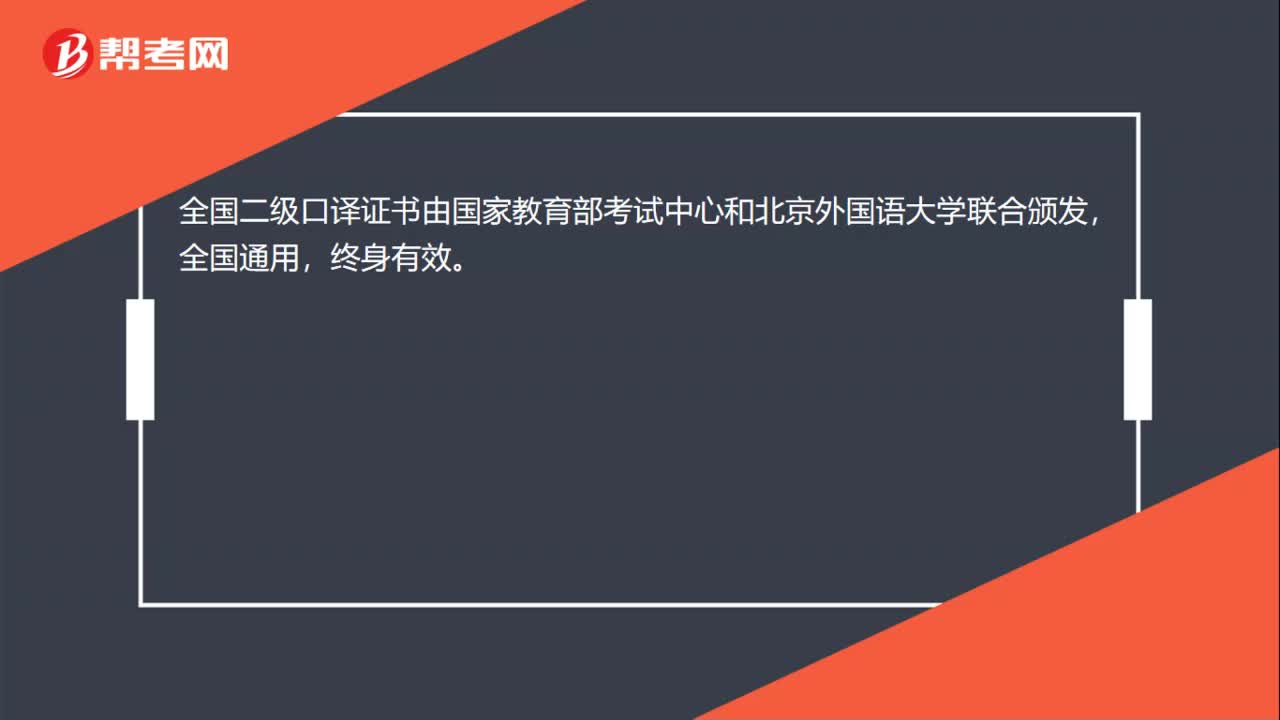 00:17
00:172020-06-03
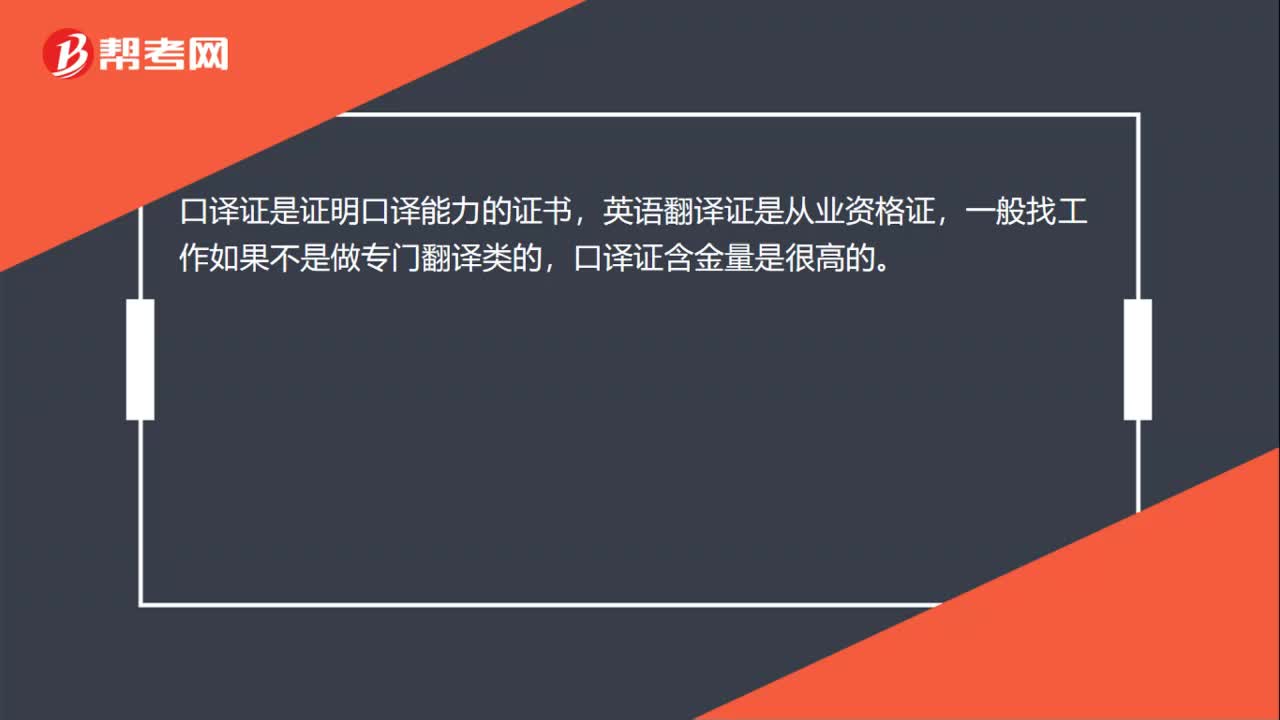 00:17
00:172020-06-03

微信扫码关注公众号
获取更多考试热门资料